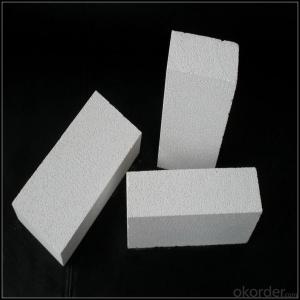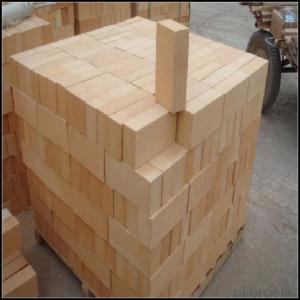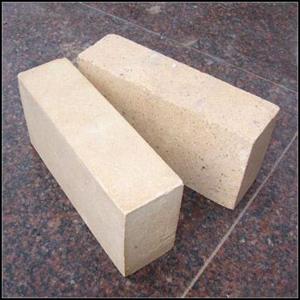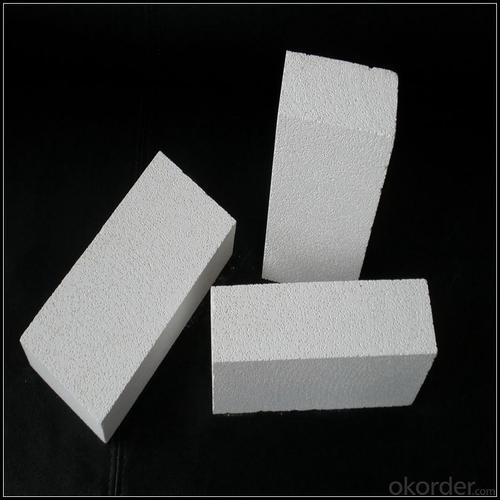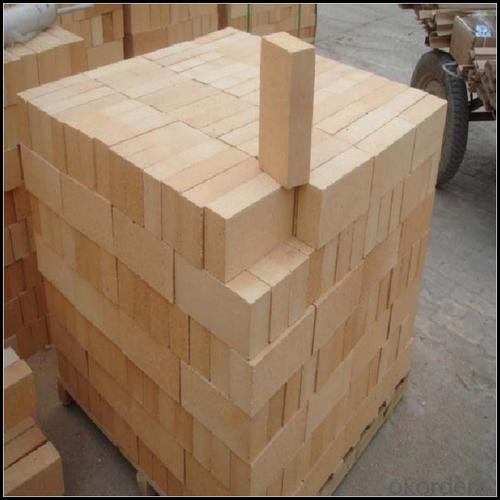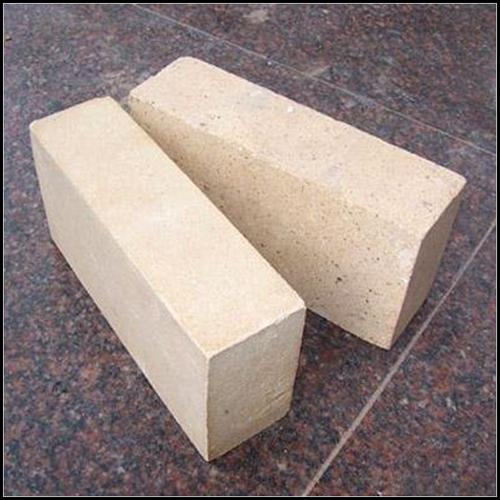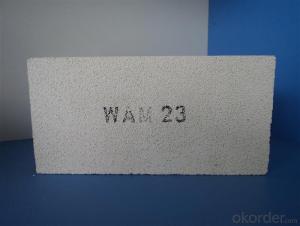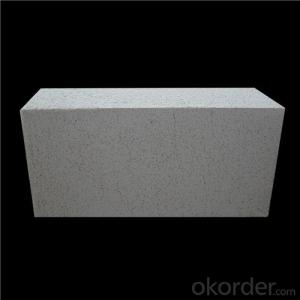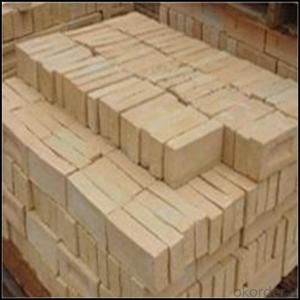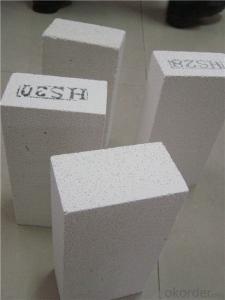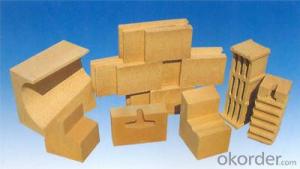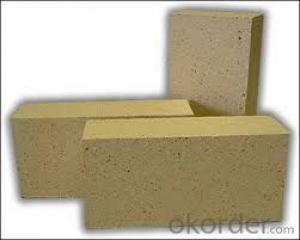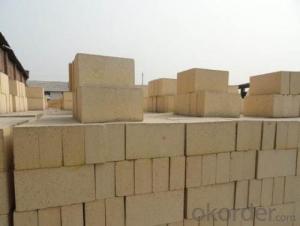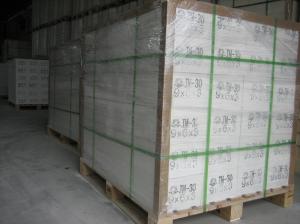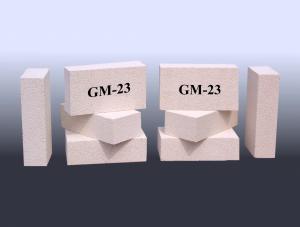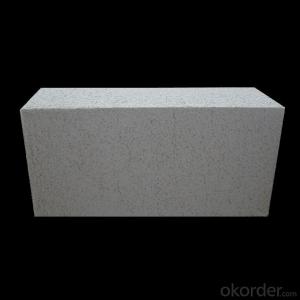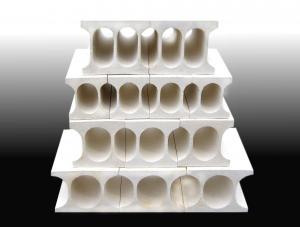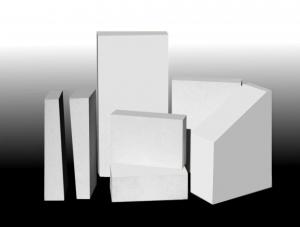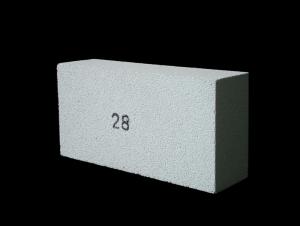Insulating Fire Brick for Furnace Lining/High Alumina Brick
- Loading Port:
- China main port
- Payment Terms:
- TT OR LC
- Min Order Qty:
- 5 m.t
- Supply Capability:
- 800 m.t/month
OKorder Service Pledge
OKorder Financial Service
You Might Also Like
Refractory Brick
CMAX firebricks are classified under temperature between 1300℃ to 1700℃, manufactured from high purity alumina clay by mixing, press-forming, drying, sintering and machining. Bricks contain carefully-graded organic fillers which are burned out during sintering to give a uniform controllable pore structure. This technique makes product feature low thermal conductivity and excellent heat insulation
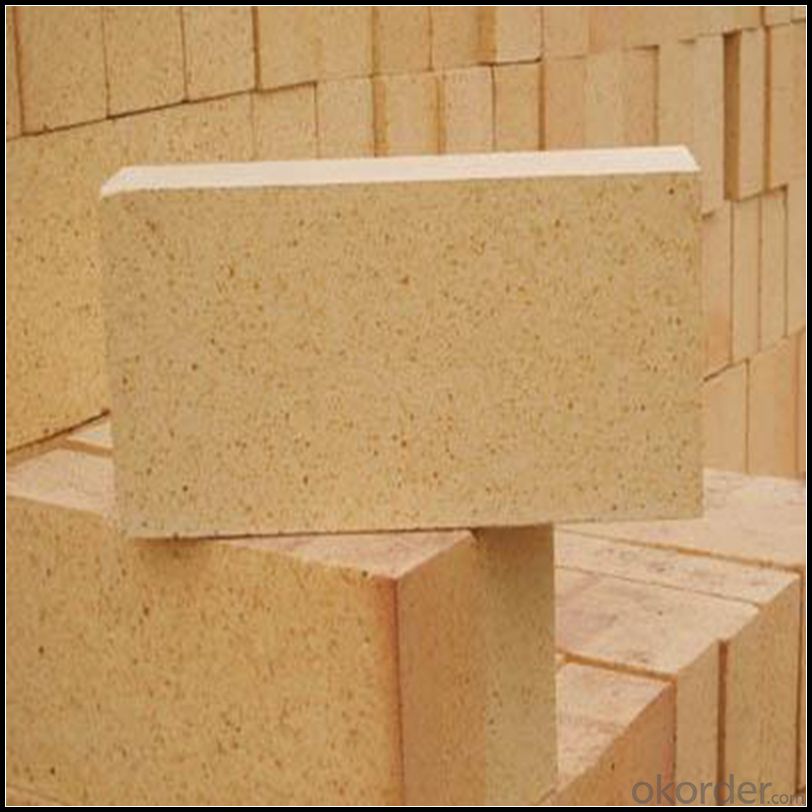
Features
1.Dense crystal structure.
2.High bulk density.
3.High mechanical strength at normal and high temperature.
4.Good thermal shock resistance.
4.Low creep and low permanent liner change rate.
5.High performance of chemical stability and alkaline medium erosion resistance.
Application
1.Building material industry,kiln,heating equipment and the inwall of high—temperature pipe line
2.Chemical industrial high temperature of reaction equipment inwall
3.Power plant ,gas turbine engine and heat insulation of unclear power
4.The fire proof of high—rise building
5.Furnace door of kiln
6.High-temperature filter material
Data Sheet
Classification Temperature (℉/℃) | 3000/1650 |
Bulk Density (g/cm3 ) | ≤1.0 |
Thermal Conductivity | |
800℃, W/m.K | ≤0.39 |
1000℃, W/m.K | ≤0.43 |
1200℃, W/m.K | ≤0.48 |
Reheating Linear Change (%) | 1550℃×12h |
≤0.9 | |
Chemical Composition (%) | |
Al2O3 | ≥75 |
Fe2O3 | ≤0.5 |
Packaging & Shipping
Packaging Details:Be packed in fumigated wooden pallets
Delivery Detail: 30 days after order

Our Services
Optimum solution and product supply of refractories for high temperature industries, such as iron steel, non-ferrous, petrochemical and building materials.
Engineering design, contract and consult for refractories, and civil architecture design.
Research, development, manufacture and sale of superhard materials.
R&D, manufacture and sale of special packing materials for export.
Inspection, supervision and arbitration of refractories.
Consultation and services in refractories information.
Training and cultivation of high-level talents in refractories profession
Sales Network

Company Information
CNBM (China National Building Material) Group is the largest comprehensive building materials group in China that in integrate scientific research, manufacturing and logistics into one entity. The largest building materials and equipment specialists in China. Upon State Council approval, today CNBM owned more than 300 subordinate manufacturing factories and servicing companies. There are 6 fully owned public listed companies and 11 partially owned with substantial shares public listed companies. In many of these fields, CNBM is playing the leading role in the building industry in the country.
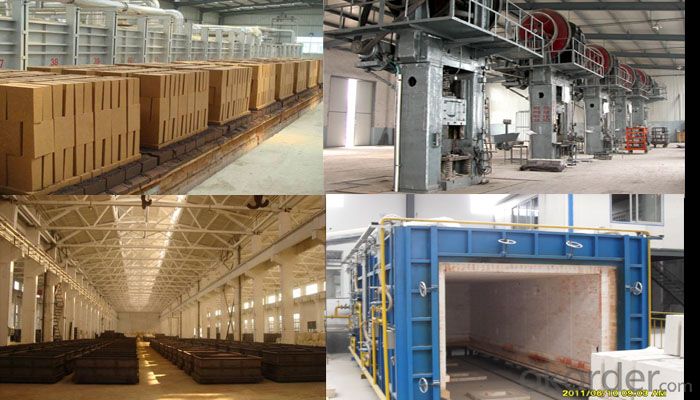
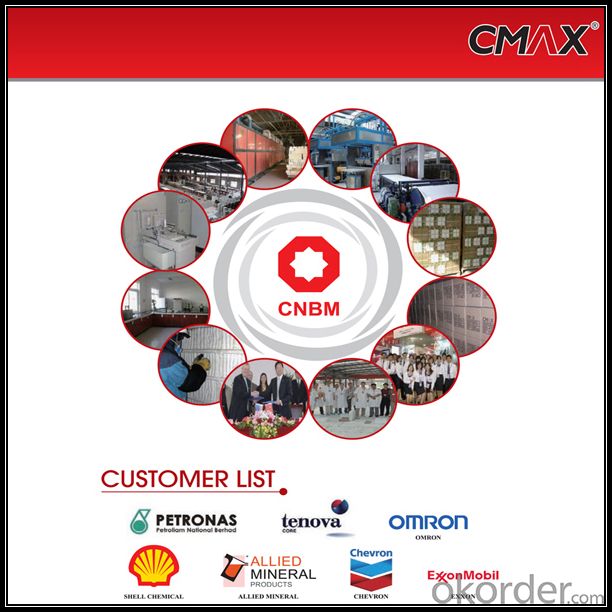
FAQ
1. Which products do you have?
We have all kinds of refractory brick, castable, mortar, cement, ceramic fiber products, etc.
Or you could browse our products to choose what you need.
2. Can you give me a brief introduction of the application of your products?
We are mainly specializing in the refractory materials in iron and steel, cement, glass, ceramics, petrochemical, electric power Industry, etc.
3. If I need your offer, what information do you need?
In order to choose suitable products, it will be appreciated to provide us the information, such us specification, technical data, order quantity, products application etc. If any question, please contact us freely.
- Q: Can insulating fire bricks be used in the construction of smelters or foundries?
- Yes, insulating fire bricks can be used in the construction of smelters or foundries. Insulating fire bricks have excellent thermal insulation properties and can withstand high temperatures, making them suitable for lining the walls and floors of smelters or foundries. They help to retain heat, improve energy efficiency, and protect the surrounding structures from extreme temperatures.
- Q: Are insulating fire bricks resistant to hydrogen sulfide?
- Insulating fire bricks are generally not resistant to hydrogen sulfide. Hydrogen sulfide is a highly corrosive gas that can react with many materials, including fire bricks. While fire bricks are designed to withstand high temperatures, they are not specifically designed to resist chemical corrosion. If exposed to hydrogen sulfide, fire bricks may deteriorate over time, leading to potential damage or failure. Therefore, it is recommended to use alternative materials that are specifically designed to resist hydrogen sulfide corrosion in applications where exposure to this gas is expected.
- Q: Are insulating fire bricks suitable for use in oil refineries?
- Insulating fire bricks are generally not suitable for use in oil refineries. While insulating fire bricks are designed to withstand high temperatures, they are not resistant to the corrosive and abrasive nature of oil and its byproducts. Oil refineries involve a complex process of refining crude oil into various petroleum products, and this process often exposes the materials used in the refinery to harsh chemicals and high temperatures. Instead, oil refineries typically use refractory bricks or castables that are specifically designed to withstand the corrosive and abrasive conditions found in the refining process. Refractory materials used in oil refineries are resistant to chemical attack, have high strength and thermal shock resistance, and can withstand the extreme temperatures encountered during the refining process. Additionally, oil refineries require materials that can provide excellent insulation properties while also being durable and resistant to thermal stress. Insulating fire bricks, although they have good insulation properties, may not have the necessary durability and resistance to thermal stress required in the demanding environment of an oil refinery. Therefore, it is recommended to use refractory bricks or castables specifically designed for oil refineries, which can provide the necessary resistance to chemicals, high temperatures, and thermal stress, ensuring safe and efficient operation of the refinery.
- Q: Can insulating fire bricks be used in kilns or furnaces?
- Yes, insulating fire bricks can be used in kilns or furnaces. These bricks are designed to withstand high temperatures and provide excellent thermal insulation, making them suitable for lining kilns and furnaces to enhance energy efficiency and maintain high temperatures.
- Q: Do insulating fire bricks require any special installation techniques?
- Yes, insulating fire bricks require special installation techniques. These bricks are typically lightweight and have low thermal conductivity, making them highly effective in insulating applications. To ensure proper installation, it is important to follow the manufacturer's guidelines and use appropriate tools, such as refractory mortar or adhesive, to securely bond the bricks together. Additionally, proper curing and drying procedures should be followed to avoid any potential cracking or damage during the installation process.
- Q: Can insulating fire bricks be used for insulation in foundries?
- Yes, insulating fire bricks can be used for insulation in foundries. Insulating fire bricks have high insulating properties and can withstand high temperatures, making them suitable for use in foundries to reduce heat loss and improve energy efficiency.
- Q: Can insulating fire bricks be used for flooring insulation?
- Insulating fire bricks are primarily designed for high-temperature applications such as kilns, furnaces, and fireplaces. While they can provide excellent thermal insulation, they may not be the best choice for flooring insulation. Insulating fire bricks are typically softer and less durable compared to other flooring materials, which can make them susceptible to damage from foot traffic. Additionally, they may not provide sufficient support and stability for the floor, especially in high-traffic areas. For flooring insulation, it is generally recommended to use materials specifically designed for this purpose, such as foam boards, cork, or rubber underlayments. These materials are more resilient, durable, and better suited to withstand the demands of flooring applications. They also offer better noise reduction and moisture resistance, which are important considerations for flooring insulation.
- Q: Can insulating fire bricks be used in the construction of steel rolling mills?
- Insulating fire bricks have the capability to be utilized in the construction of steel rolling mills. With their exceptional thermal insulation properties, these bricks are designed specifically for applications that necessitate high temperatures and heat containment. They prove to be suitable for lining the walls of furnaces, ovens, and other heat-processing equipment within steel rolling mills due to the involvement of elevated temperatures. The utilization of these bricks aids in diminishing heat loss, enhancing energy efficiency, and maintaining a steady temperature environment, which is of utmost importance during the steel rolling process. Furthermore, the lightweight nature and ease of installation of insulating fire bricks make them a practical and advantageous choice for construction purposes in steel rolling mills.
- Q: Can insulating fire bricks be used in kiln car construction?
- Yes, insulating fire bricks can be used in kiln car construction. These bricks possess excellent thermal insulation properties, making them suitable for creating an energy-efficient and temperature-stable environment inside the kiln. Additionally, their lightweight nature simplifies the construction process and allows for easy handling of kiln cars.
- Q: Can insulating fire bricks be used for insulation in glass manufacturing?
- Yes, insulating fire bricks can be used for insulation in glass manufacturing. Insulating fire bricks offer high-temperature resistance and low thermal conductivity, making them suitable for insulation and maintaining consistent temperatures during glass manufacturing processes.
Send your message to us
Insulating Fire Brick for Furnace Lining/High Alumina Brick
- Loading Port:
- China main port
- Payment Terms:
- TT OR LC
- Min Order Qty:
- 5 m.t
- Supply Capability:
- 800 m.t/month
OKorder Service Pledge
OKorder Financial Service
Similar products
Hot products
Hot Searches
Related keywords
